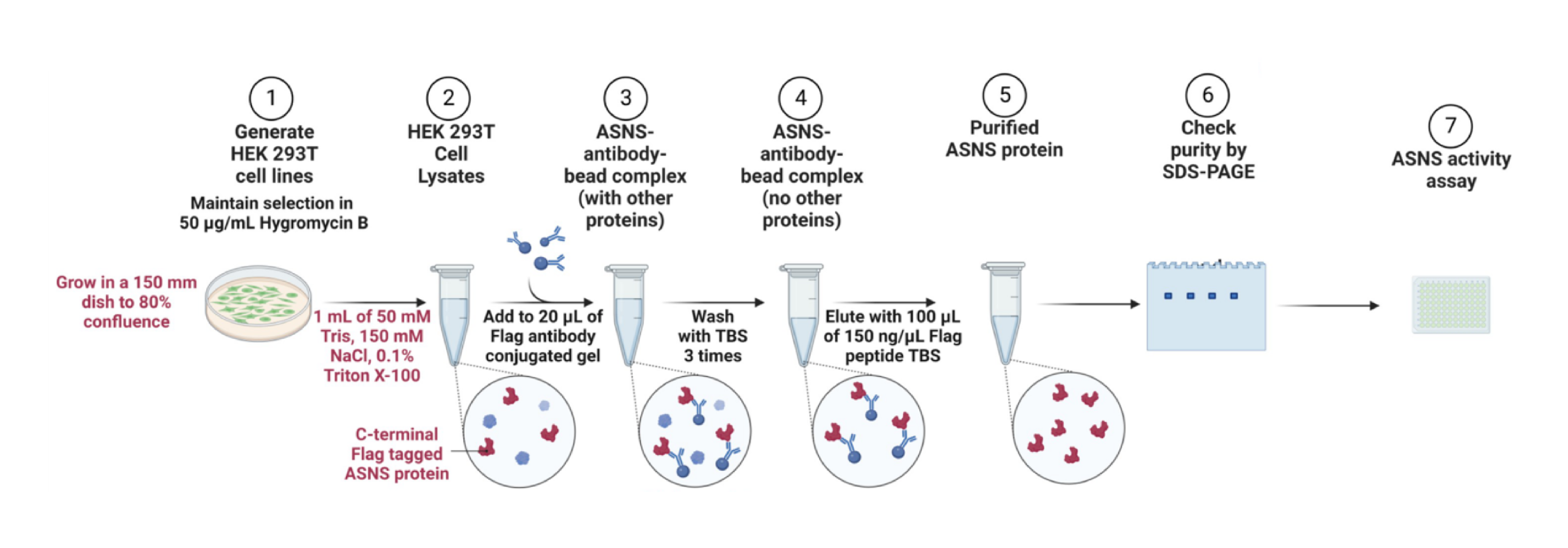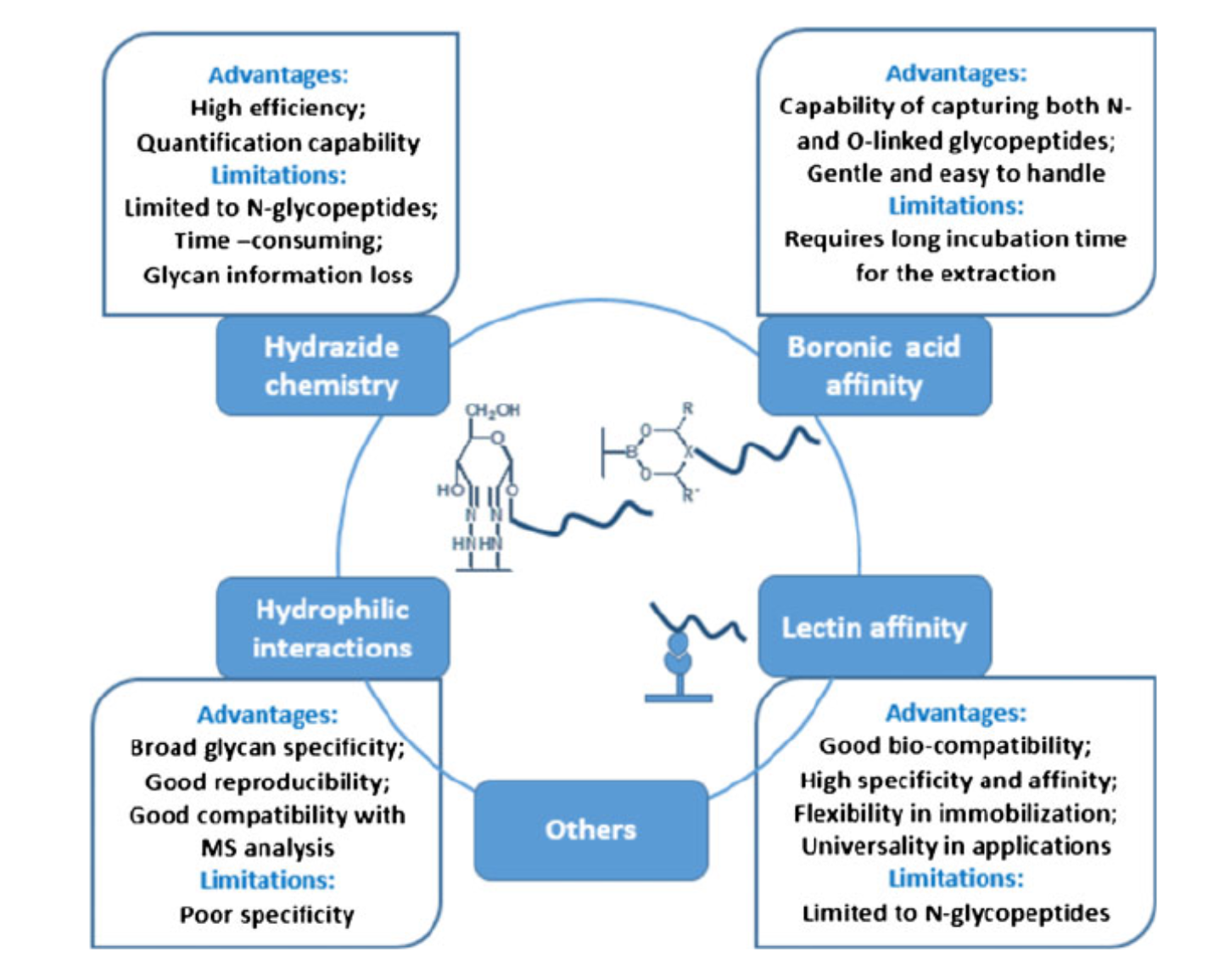Protein Enrichment Analysis Service
- Affinity Purification (AP): Uses specific ligands (e.g., biotin-streptavidin systems).
- Immunoprecipitation (IP): Enriches target proteins using specific antibodies.
- Lectin Affinity Chromatography: For glycoprotein enrichment using lectins.
- His-Tag or GST-Tag Purification: Captures recombinant proteins tagged with His or GST.
- Chromatin Immunoprecipitation (ChIP): For DNA-binding protein analysis.
- Phosphoprotein Enrichment: Immobilized Metal Affinity Chromatography (IMAC), Titanium Dioxide (TiO₂) Chromatography, Strong Cation Exchange Chromatography (SCX).
- Glycoprotein Enrichment: Hydrophilic Interaction Chromatography (HILIC), Hydrazide Chemistry, Lectin Affinity Chromatography, etc.
- Ubiquitinated Protein Enrichment: Ubiquitin-affinity antibodies.
- Acetylated Protein Enrichment: Acetyl-lysine antibodies for immunoprecipitation.
- Offers cost-effective and efficient protein enrichment methods for detailed proteomic analysis.
- Provides high-sensitivity techniques suitable for limited sample amounts, ensuring reliable results.
- Delivers customized enrichment strategies tailored to specific research needs.
- Supported by experienced experts in Protein Enrichment Analysis Service, ensuring high-quality and reproducible outcomes.
Protein enrichment analysis is a critical approach in proteomics research, designed to isolate and concentrate specific proteins or protein subsets from complex biological samples. Protein enrichment analysis is particularly essential in scenarios where target proteins are present in low abundance, such as in the study of rare disease biomarkers, signaling pathways, or post-translational modifications (PTMs). Protein enrichment analysis is also indispensable when analyzing proteins with subtle modifications or those located in specific cellular compartments, which are often overshadowed by high-abundance proteins in complex matrices like plasma, serum, or tissue lysates. By overcoming these challenges, protein enrichment analysis enables deeper insights into biological systems and critical processes that would otherwise remain undetected.
In proteomics, the identification of low-abundance proteins or modified proteins, such as phosphorylated or glycosylated proteins, requires a sensitive and targeted approach. Protein enrichment analysis techniques like affinity purification, immunoprecipitation, and chromatography combined with high-resolution mass spectrometry enable researchers to achieve enhanced sensitivity and specificity in protein detection. These methods ensure sensitivity, specificity, and reproducibility in protein detection and quantification.
Service at MtoZ Biolabs
MtoZ Biolabs provides a specialized Protein Enrichment Analysis Service to address the challenges of isolating and analyzing low-abundance proteins and post-translational modifications (PTMs) from complex biological samples. The Protein Enrichment Analysis Service enhances the detectability and quantification of target proteins, enabling high-quality data for downstream proteomic research. Our Protein Enrichment Analysis Service employs advanced enrichment technologies, including:
1. Affinity-Based Protein Enrichment Analysis
Enrichment relies on the specific binding of proteins to ligands, antibodies, or tags.

Figure 1. Flow Diagram of the Purification of C-Terminal FLAG-Tagged Asparagine Synthetase (ASNS) Protein
2. PTM-Specific Protein Enrichment Analysis
Enrichment targets specific post-translational modifications (PTMs) of proteins.

Figure 2. Experimental Strategies for Glycoprotein/Glycopeptide Enrichment
Our Protein Enrichment Analysis Service integrates high-resolution mass spectrometry platforms to deliver precise quantification and detailed characterization of enriched proteins. Applications of Protein Enrichment Analysis Service include biomarker discovery, drug development, pathway analysis, and functional proteomics. At MtoZ Biolabs, we provide customized solutions to meet your specific research objectives, ensuring reliable results to drive your scientific breakthroughs. Free project evaluation, welcome to learn more details.
Service Advantages
Applications
1. Biomarker Discovery
The Protein Enrichment Analysis Service facilitates the identification of low-abundance proteins or post-translationally modified proteins, enabling the discovery of disease-specific biomarkers for diagnostics and therapeutics.
2. Post-Translational Modification (PTM) Analysis
Supports the enrichment and characterization of PTMs such as phosphorylation, glycosylation, ubiquitination, and acetylation, providing insights into cellular signaling and regulatory mechanisms through protein enrichment analysis.
3. Drug Development and Target Validation
Enables the identification and quantification of drug targets, therapeutic proteins, and their modified forms, aiding in the development and validation of new drugs.
4. Pathway and Systems Biology Studies
Allows targeted enrichment of proteins involved in specific pathways, improving the understanding of complex cellular processes and functional proteomics.
5. Clinical and Translational Research
The Protein Enrichment Analysis Service provides sensitive detection of proteins in biological fluids such as plasma, serum, or urine, supporting translational studies for disease mechanisms and patient stratification.
Deliverables
1. Comprehensive Experimental Details
2. Materials, Instruments, and Methods
3. Total Ion Chromatogram & Quality Control Assessment (project-dependent)
4. Data Analysis, Preprocessing, and Estimation (project-dependent)
5. Bioinformatics Analysis
6. Raw Data Files
MtoZ Biolabs, an integrated chromatography and mass spectrometry (MS) services provider.
Related Services
Immunoprecipitation Analysis Service
How to order?







